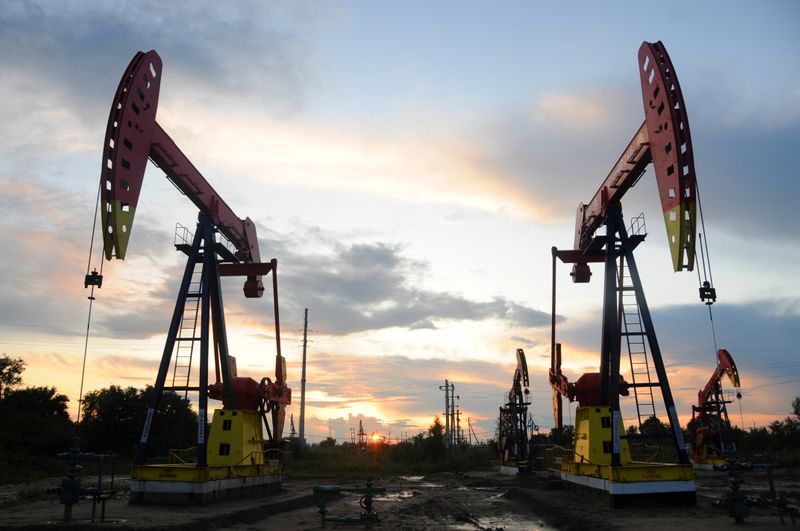NEW YORK (Reuters) – Oil prices sank on Thursday following poor U.S. economic figures and after U.S. President Donald Trump roiled markets with a suggestion that the nation should delay its November presidential election.
Investors sold riskier assets following Trump’s tweet that raised the prospect of delaying the vote. The date of the U.S. election is enshrined in the U.S. Constitution, but Trump’s remarks were viewed as an attack on the integrity of the coming election, worrying investors.
Oil markets recovered from their lowest levels of the selloff. U.S. West Texas Intermediate (WTI) crude futures settled down $1.35, or 3.3%, at $39.92 a barrel after falling 5% earlier in the session.
Brent crude futures, which expire on Friday, fell 81 cents, or 1.9%, to $42.94 a barrel.
“We have the potential for serious political uncertainty in the U.S. if election dates are challenged,” said John Kilduff, partner at Again Capital in New York.
In a sign of the devastating impact of the coronavirus on the United States, the world’s biggest oil consumer, the country’s economy contracted at its steepest pace since the Great Depression in the second quarter.
U.S. gross domestic product collapsed at a 32.9% annualised rate, the deepest decline in output since the government started keeping records in 1947. In addition, weekly jobless claims rose, a signal that the worsening outbreaks across wide swathes of the United States are taking a further toll on the economy.
Deaths from COVID-19 have now topped 150,000 in the United States, while Brazil, with the world’s second-worst outbreak, set daily records of confirmed cases and deaths. New infections in Australia hit a record on Thursday.
The potential threat to a recovery in oil demand comes as the Organization of the Petroleum Exporting Countries (OPEC) and its allies, together known as OPEC+, are set to step up output in August, adding about 1.5 million barrels per day to global supply.
“The market is now watching U.S. producers and OPEC+ consider plans to ramp up while demand isn’t returning the way we thought it would a few weeks ago…the supply demand balance could get out of whack” said Gene McGillian, vice president of market research at Tradition Energy.
(Additional reporting by Ahmad Ghaddar in London, Sonali Paul in Melbourne and Koustav Samanta in Singapore. Editing by Marguerita Choy and Bernadette Baum)

























